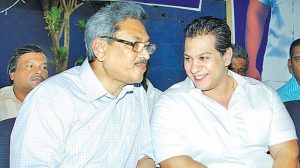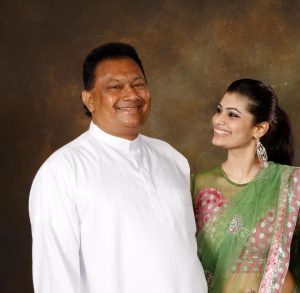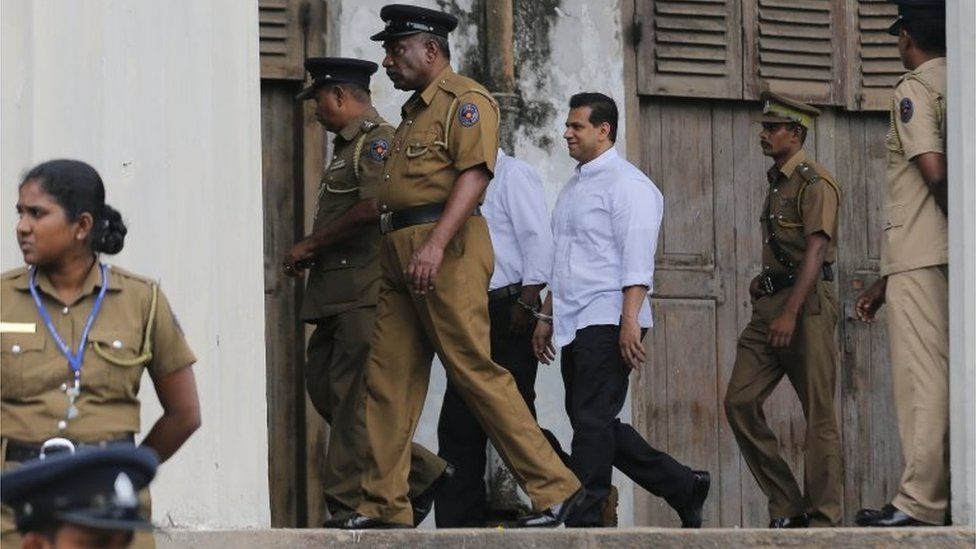Duminda Silva’s presidential pardon having been revoked has put him behind bars, and presumably, he will have to spend a long time in jail. This ruling raises serious questions about how former President Gotabaya Rajapaksa ignored due process and gave preferential treatment to a parliamentarian of his own camp.

The unanimous court ruling declaring a presidential pardon invalid has happened for the first time in Sri Lanka. The former President had ignored the comments of the judges who passed the death sentence on Duminda Silva for causing the death of political rival Bharatha Lakshman Premachandra.
High Court Judge M. C. B. S. Morais, who passed the death sentence on Duminda Silva, wrote to the then President Gotabaya Rajapaksa:
“I understand that the prisoner was a politician. The role of a politician in a democratic society is to lead people and to set an example to others by conduct. In this incident, 4 persons were murdered and another was attempted to be murdered, in addition to possessing an illegal firearm. In my view, any pardon considered for the prisoner would not tally with the norms of a democratic society. In light of the above, I do not recommend any pardon being considered presently. However, as Your Excellency has a Constitutional discretion, I leave it at Your Excellency’s hands.”
The other High Court Judge, now retired Padmini N. R. Gunatilake, held a similar view and conveyed her opinion to the former President, which was also ignored. “It is my view that Mr. Duminda Silva was correctly and lawfully convicted and sentenced to death, and therefore, I cannot recommend that he be pardoned by Your Excellency.”
 On June 24, 2021, Duminda Silva was released under a special presidential pardon by President Gotabaya Rajapaksa and later appointed Chairman of the National Housing Development Authority. Michelle Bachelet, the UN High Commissioner for Human Rights, conveyed her displeasure over Duminda’s release and insisted that Sri Lanka was giving another example of preferential, selective granting of pardons.
On June 24, 2021, Duminda Silva was released under a special presidential pardon by President Gotabaya Rajapaksa and later appointed Chairman of the National Housing Development Authority. Michelle Bachelet, the UN High Commissioner for Human Rights, conveyed her displeasure over Duminda’s release and insisted that Sri Lanka was giving another example of preferential, selective granting of pardons.
Daughter of slain Bharatha Lakshman Premachandra, Hirunika Premachandra, took it upon herself to challenge Duminda Silva’s pardon in courts and filed her case with her mother and a family friend who was a lawyer. Hours after the pardon announcement, Hirunika Premachandra called a press conference in Colombo and said, “The court ruling proves that the truth will always triumph over wealth and political power.” She further stated that it was former President Mahinda Rajapaksa who allowed the animosity between Duminda Silva and her father to fester and exploited it for his own advantage.
Many social media posts have referred to Hirunika Premachandra as a “woman of iron” who has done justice to her father.
“Mirusuvil massacre.”
There have been a number of other cases where the provision of Presidential Pardon has caused controversy.
On March 26, 2020, President Gotabaya Rajapaksa granted a presidential pardon to former Lance Corporal Sunil Ratnayake, a prisoner on death row for the murder of eight people in Mirusuvil in 2000. Ratnayake was sentenced to death by a Trial-at-Bar bench of the Colombo High Court in June 2015.
Global Human Rights Group, Amnesty International, expressed their concerns and disapproval over President Gotabaya Rajapaksa’s decision to grant a presidential pardon and release Staff Sergeant Sunil Rathnayake, found guilty of the “Mirusuvil massacre.”
MP M.A. Sumanthiran highlighted the significance of this ruling, stating, “For the first time in the history of Sri Lanka, the court has ruled that the pardon of a President is invalid. This is a welcome development as some other cases are also pending. We are also challenging the pardon given to Sunil Ratnayake, the murderer responsible for the Mirusuvil massacre.”
Maithripala Sirisena:
Former President Maithripala Sirisena also granted two controversial presidential pardons during his term in office. In May 2019, he pardoned the secretary general of the militant Sinhala-Buddhist group Bodu Bala Sena, Venerable Galagoda Aththe Gnanasara Thera. The Thera was serving a six-year prison sentence for contempt of court imposed by the Court of Appeal in August 2018.
The second controversial pardon by President Sirisena was granted on November 9, 2019, to Don Shramantha Jude Anthony Jayamaha, who was sentenced to death in the Royal Park Murder case by the Court of Appeal in 2012. The Supreme Court in 2014 affirmed this sentence. The president’s pardon was reportedly based on requests made by the Buddhist clergy and other parties, including considering reports prepared by the Prisons Department and several other state institutions. The victim’s sister, Caroline Jonsson, said the killer had shown no remorse. Sri Lankans criticized the move online.
Checks and Balances:
Black’s Law Dictionary defines a “pardon” as “an act of grace,” granted by the executive authority to an individual convicted of an offense, which exempts him from the legal punishment imposed upon him, following his conviction.
The power to pardon is vested in the executive, arguably as a “check” on the powers of the judiciary, as it provides a means of rectifying any miscarriage of justice. However, leaving this executive power unchecked could result in abuse.
The recent revocation of Duminda Silva’s pardon and the ongoing legal challenges to other controversial pardons highlight the need for a more transparent and accountable system for granting pardons in Sri Lanka. This will ensure that the power of pardon is used fairly and justly, upholding the rule of law and protecting the rights of victims and their families.







